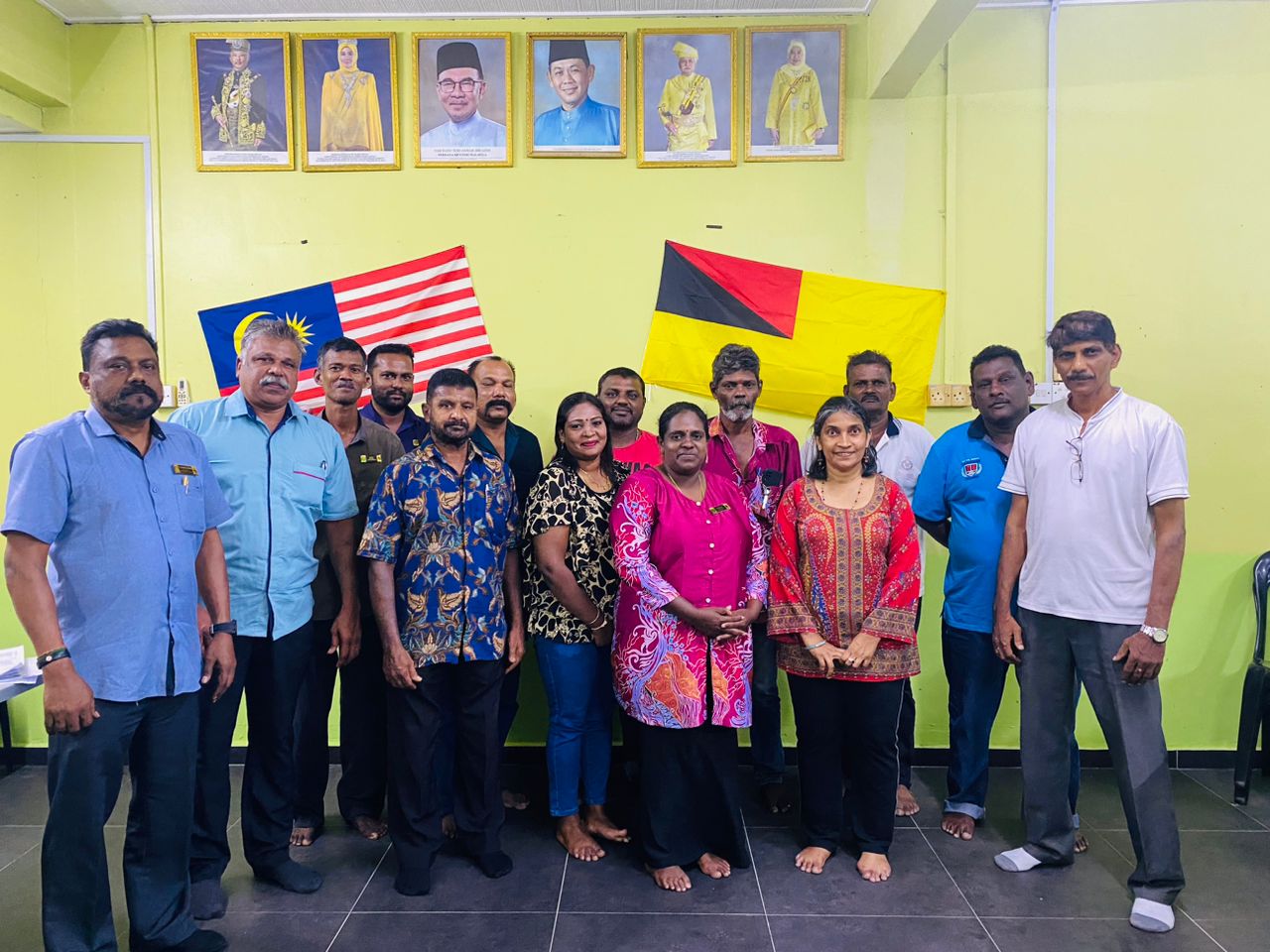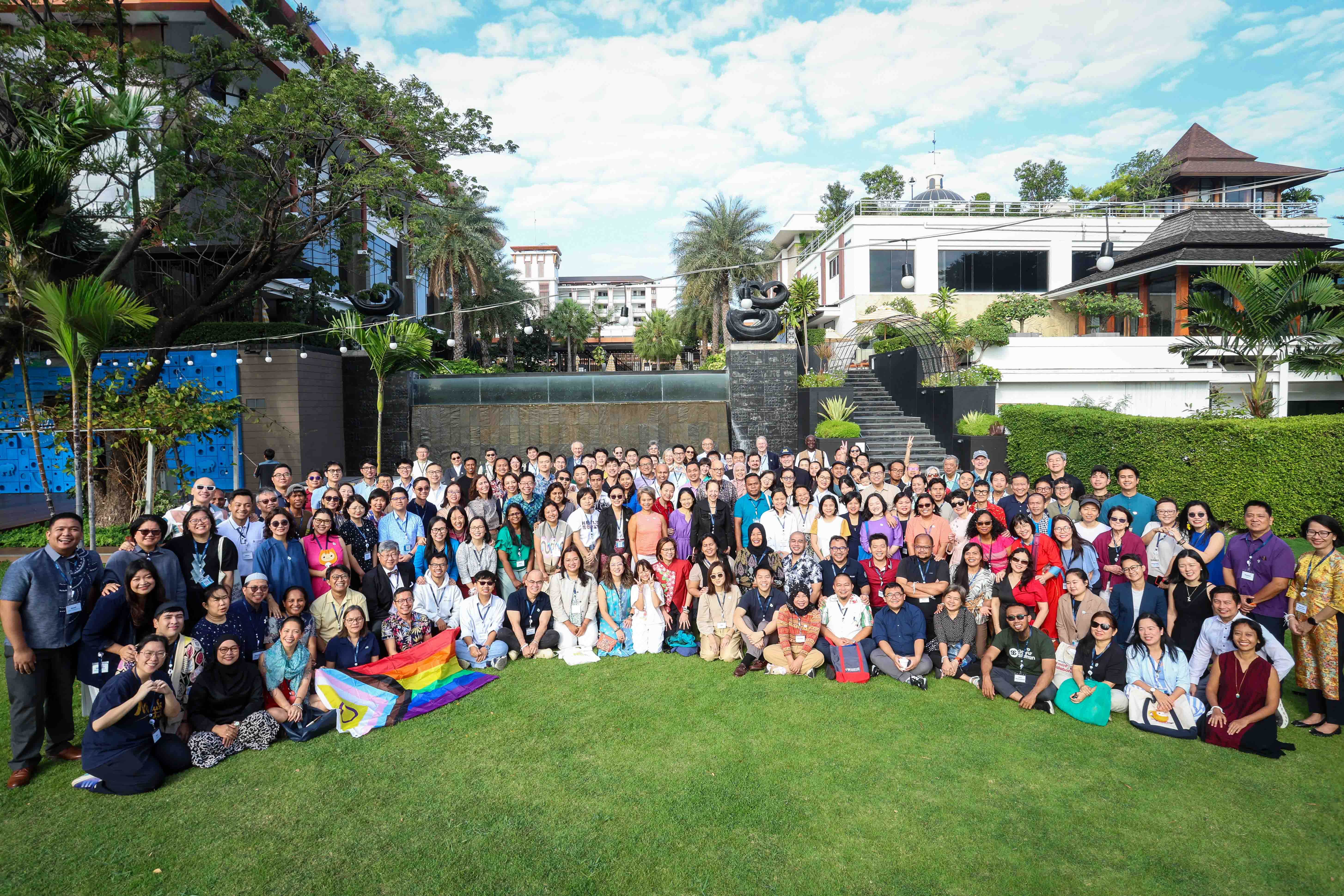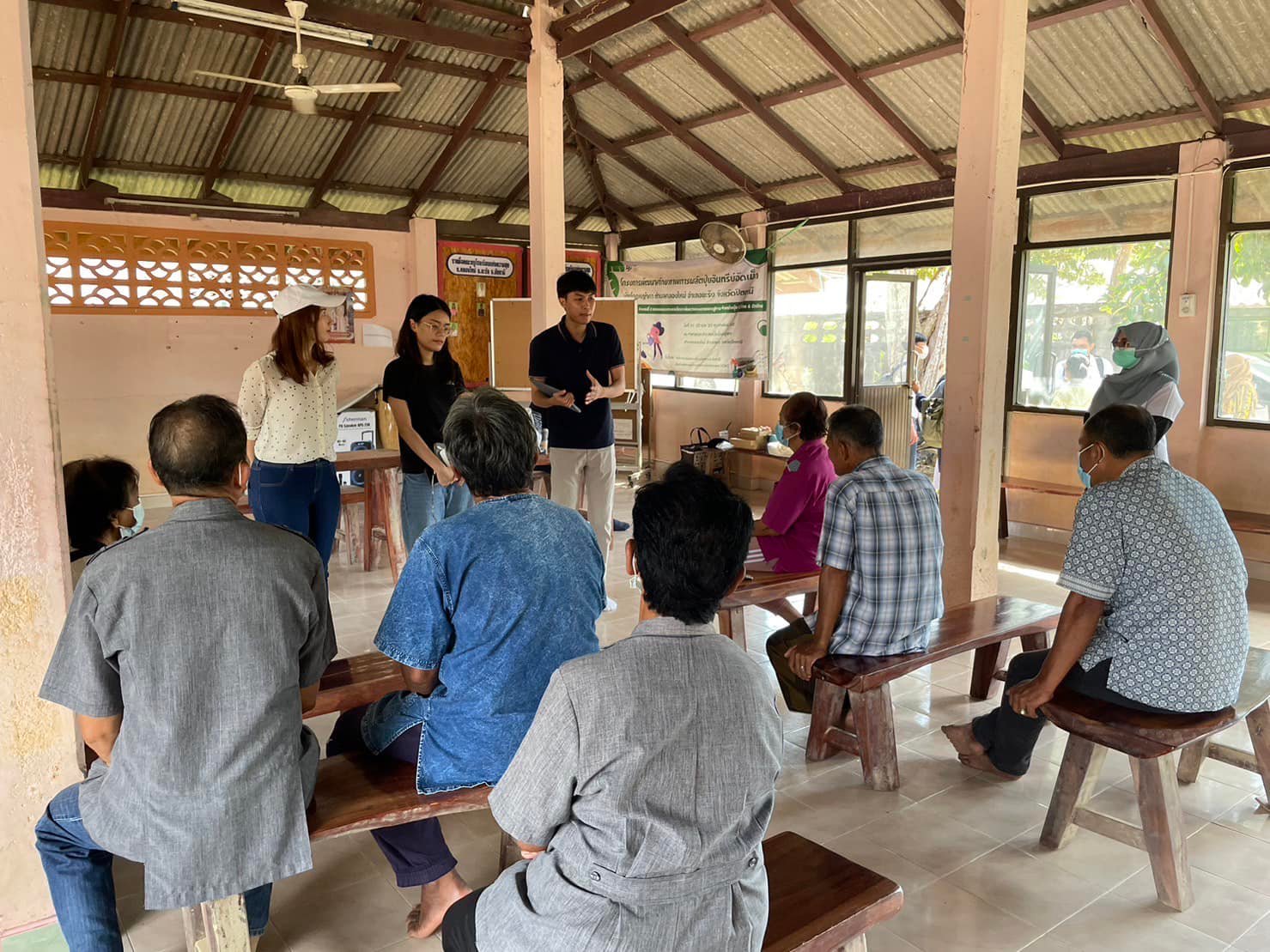Breaking Structural Inequities by Uplifting Plantation Workers Dignity and Rights
This story is part of a new series highlighting the work of Equity Initiative (EI) Fellows during the Community Building phase of the Equity Initiative program- a lifelong commitment to advancing health equity across Southeast Asia and China. Through CMB Foundation/EI grants like the Community Building Fund, Fellows lead innovative, locally grounded solutions that address pressing social and health challenges.
Pictured above: Consultation with NUPW (National Union of Plantation Workers) branch members on the Draft Housing Bill
|
Community Building Fund Project Snapshot: Breaking Structural Inequities Uplifting Plantation Workers Dignity
|
Palm oil is used in packaged products around the world—from food and cosmetics to cleaning supplies—yet the labor behind it remains largely unseen. Across Malaysia’s palm oil plantations, the workers who keep the industry running often face deep uncertainty. Plantation work is physically demanding and often dangerous: workers spend long hours harvesting heavy fruit, applying toxic pesticides, and maintaining the land. Many have spent their entire working lives on these plantations, only to risk eviction when they retire and others labor in unsafe conditions with little legal protection. These challenges touch every aspect of health and well-being, from housing stability to physical safety and financial security. Access to safe shelter, a stable income, and protection at work are not separate from healthcare; they are health care. They represent the social determinants of health—conditions that shape whether people can live healthy, secure, and dignified lives.
Grounded in Experience
For Equity Initiative Fellow Letchimi Devi Doraisamy (2019, Malaysia), a longtime social activist, these realities are not new. Over more than two decades working with marginalized communities—including plantation workers, contract workers, refugees, and the urban poor—she has seen firsthand how basic rights and dignity are too often out of reach. “I believe that every worker must be respected so they have dignity, security and fair treatment. All these components are within the rights of the worker,” she says.
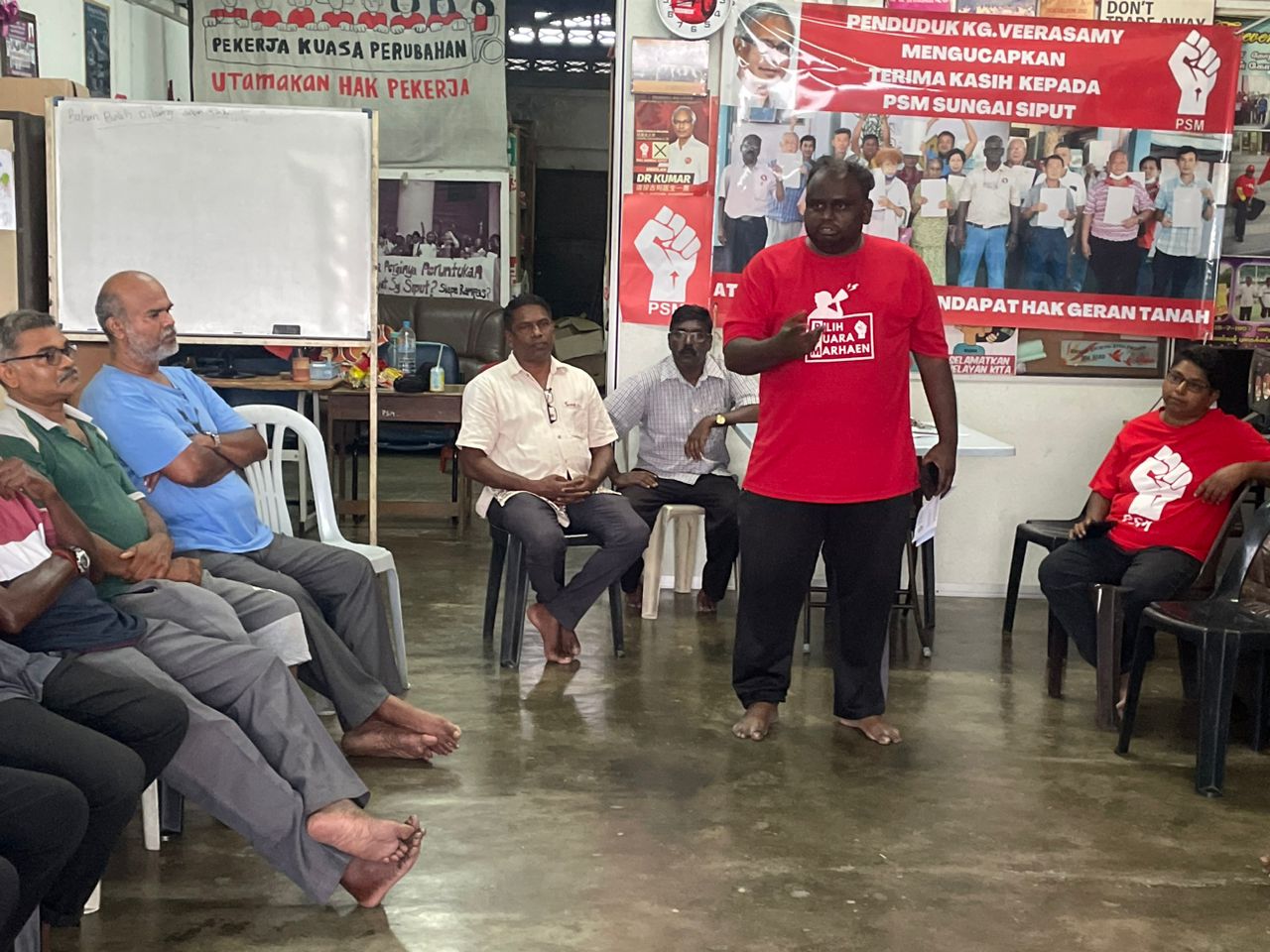
Pictured above: Meeting with Plantation Workers facing eviction.
A Grassroots Movement to Policy Implementation
Letchimi is quick to point out that the leadership in this fight comes from the ground up. The CMB/EI-funded Community Building Fund (CBF) project she helped to coordinate was built on the tireless work of grassroots organizations: The Plantation Workers Support Committee (JSML), a volunteer-led network of plantation worker activists in Malaysia, and Transnational Palm Oil Labor Solidarity (TPOLS), an Indonesian network organizing around palm oil labor rights, with support from NorthSouth Initiative (NSI). Letchimi then brought her experience in movement-building and cross-sector advocacy to help bridge grassroots efforts with broader policy engagement and regional learning.
JSML had already been building a campaign for a national Housing Bill to secure permanent housing for plantation workers—a campaign rooted in years of grassroots organizing. CMB/EI’s CBF grant allowed JSML to expand its reach and sharpen its advocacy. “What I liked about this is that the grassroots activists are normally very good on the ground, but when it comes to paperwork, they really struggle. I think the grant has enabled them to be more organised, especially in terms of paperwork,” said Letchimi. Workers from 125 estates were engaged in the campaign, growing from 60 at the start of the project. JSML drafted and submitted Malaysia’s first Housing Bill for plantation workers to five state governments and national ministries. The campaign mobilized workers to meet directly with policymakers, helping them speak about their needs in their own words. Activists and worker leaders also participated in training sessions to strengthen their communication and advocacy skills.
Cross-Border Collaboration for Safer and Healthier Workplaces
The project addressed another critical dimension of health equity: occupational safety and health. Many plantation workers face daily exposure to hazardous chemicals without adequate protection or medical oversight. Through its cross-border collaboration, the project connected Malaysian and Indonesian partners to share strategies for improving workplace health and safety: TPOLS led workshops, social audits, and leadership training with Indonesian union members and workers and JSML contributed baseline data and expanded its own understanding of workplace risks on Malaysian plantations. Across both countries, women workers took on greater leadership in raising awareness about occupational health. In Indonesia, Occupational Safety and Health tools such as workers’ diaries, handbooks, posters, and infographics are now in active use across several provinces. “Workers are able to organize themselves and come up with brilliant ideas,” said Letchimi.
For Letchimi, one of the most meaningful aspects of the project was seeing grassroots organizations gain confidence and capacity—skills that will last well beyond the grant. Throughout the project, she worked closely with JSML and TPOLS to help them navigate project management, reporting, and advocacy planning. “It was a great experience for the organisations themselves because now they know how to do a budget, they know how to do an expenditure report. They're all volunteers—they don't normally do all this. But with the grant, they had to, so a system was created,” she said.
What’s Next for Building Enduring Leaderships
TPOLS organizers continue their advocacy in West Kalimantan, where workers are now pressing for safer workplaces, permanent employment status to secure health benefits, and access to proper occupational health services. The project also surfaced a deeper awareness of how occupational health hazards impact not only workers but also the environment and surrounding communities—laying new groundwork for grassroots solidarity.
The campaign for housing rights is also still ongoing. JSML plans to bring the Housing Bill to Parliament and continue mobilizing plantation workers and allies. Upcoming steps include launching a new multi-language booklet across Malaysia, presenting the proposed law to the Prime Minister’s office and Human Resources Ministry, and producing short videos to further engage the public. Meanwhile, advocacy for safer workplaces continues through both national and cross-border networks. TPOLS organizers are pursuing local-level partnerships to strengthen occupational health protections and improve workplace conditions for plantation workers in Indonesia. The lessons of this project will ripple outward—as grassroots leaders take the skills, tools, and connections they’ve built into future efforts.
For Letchimi, helping movements sustain themselves through grassroots leadership is central to her commitment to health equity. “For [workers] to have a balanced life, they need to have a stable income, their rights need to be respected, they need to have access to housing, they need to have access to decent income in order to have good meals and so on. All the activities that we do are to ensure the wellbeing of the people.” As the project reminds us, health equity is inseparable from dignity, security, and the conditions of daily life. When workers can claim their rights—to housing, to safety, to a voice in decisions that affect them—health equity becomes possible.
Call to action: To learn more about the Equity Initiative and how you can become part of this community, see here.
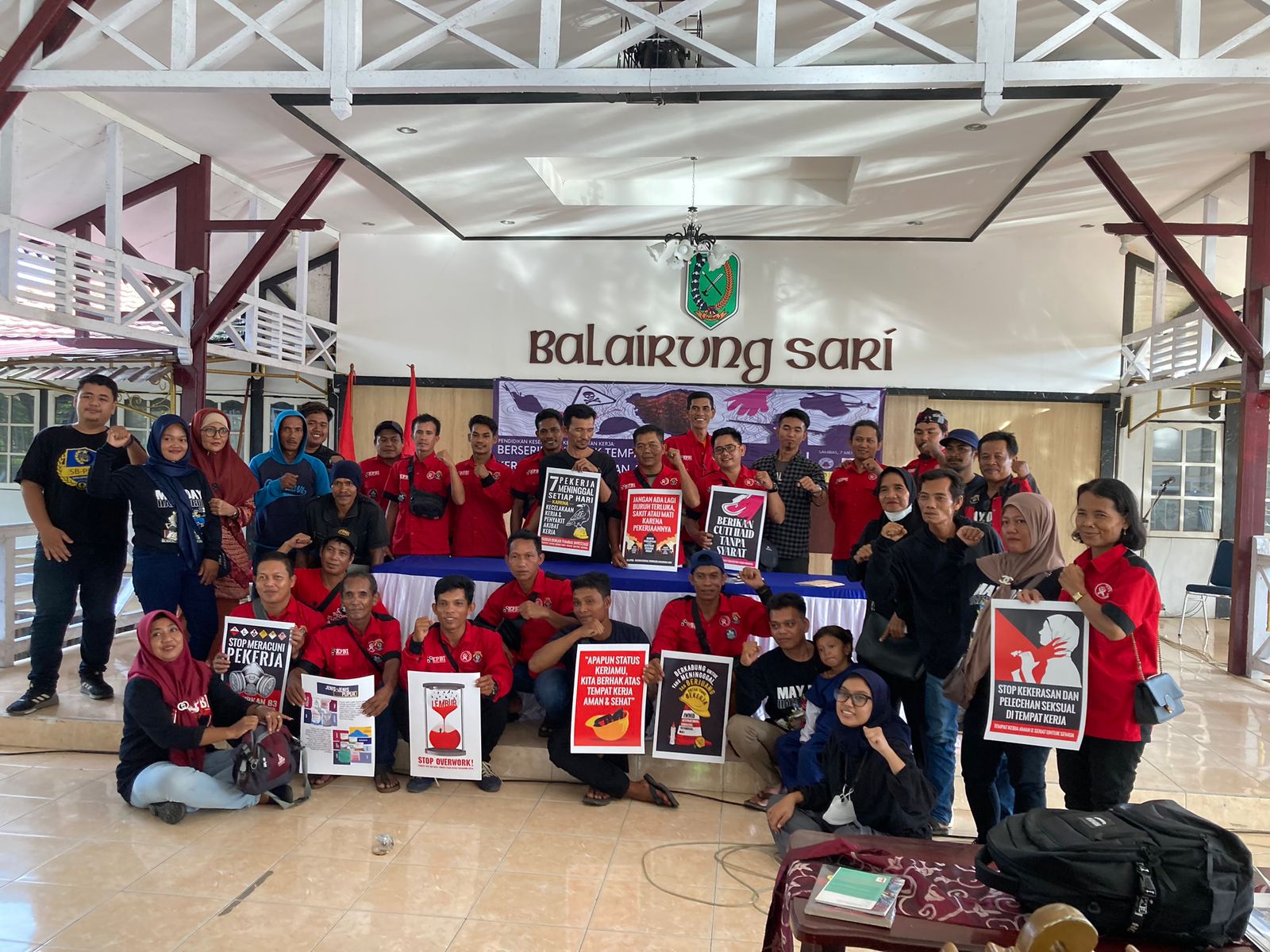
Pictured above: Training of Trainers on workplace safety.
